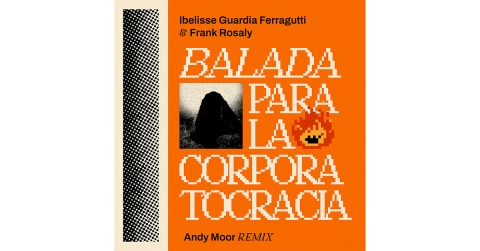Toumani Diabaté, widely recognized as the greatest living kora player, and his eldest son Sidiki, release the recording Toumani & Sidiki on World Circuit on May 19. The Guardian has called it "the finest Toumani collaboration since his classic work with Ali Farka Touré." The album, produced by World Circuit’s Nick Gold with engineer Jerry Boys, is a set of unaccompanied kora duets, featuring both obscure, almost forgotten kora pieces and a new look at some Mandé classics from Mali. With this album, Toumani aims "to show the positive side of Mali," to reassert the legacy of a country with access to untold musical riches.
Mali’s Toumani Diabaté is widely recognized as the greatest living kora player. The Observer has deemed him “one of the world’s pre-eminent musicians in any genre.” Since recording the first solo kora album, in 1988, he has brought the instrument, a 21-string African harp, to the world with albums, tours, Grammy Awards and collaborations with the likes of Ali Farka Touré, Herbie Hancock, Damon Albarn and Björk, among others. President Barack Obama has cited Toumani’s collaboration with Taj Mahal as his all-time favorite album, and The Guardian has already called the father-and-son recording Toumani & Sidiki “the finest Toumani collaboration since his classic work with Ali Farka Touré.” World Circuit releases the album in North America via Nonesuch Records on May 19; it is available to preorder in the Nonesuch Store on CD, vinyl, MP3, and FLAC with an instant download of the album track "Rachid Ouiguini."
The ties binding Toumani and Sidiki Diabaté are profound and evocative. Toumani & Sidiki continues a staggeringly long line of Diabaté family musicians. Toumani and his son were born into a 71-generation, 700-year dynasty of griots, custodians of the ancient oral traditions of West Africa’s Mandé people. Indeed, the very names “Toumani” and “Sidiki” are significant in the annals of African music. Toumani’s father, Sidiki senior, recorded the first-ever kora album, the classic Mali: Ancient Strings, in 1970, unwrapping the instrument’s potential as a virtuosic lead instrument. Toumani has taken it further, weaving together bass lines, ancient melodies and astonishing improvisations to create a kaleidoscope of musical colors.
Sidiki, Toumani’s eldest son, moves things forward again. In Bamako, the 23-year-old is a star. Voted Mali’s best beat maker in 2013, Sidiki runs his own recording and programming studio and, with rapper Iba One, comprises the country’s premier hip-hop duo, which fills the 20,000-seat Modibo Keita stadium. At the same time, he has a deep knowledge of Mandé culture and a formidable technique on the kora. “It’s a dream to play with my father,” Sidiki says. “Yes, I’m a hip-hop artist, but I love and respect my roots as a kora player, I want to know more. It’s my chance to learn directly from my father. It’s extra special because my father is my idol.”
World Circuit’s Nick Gold produced Toumani & Sidiki with engineer Jerry Boys (Ali Farka Touré, Buena Vista Social Club, Orchestra Baobab), a longtime collaborator, and with Lucy Duran, producer of Toumani’s previous albums, as co-producer. The album is a set of unaccompanied kora duets, recorded live at London’s RAK studios with little rehearsal (for some tunes, no rehearsal) and no overdubs. The album was captured in stereo, so Toumani is heard in the left speaker and Sidiki in the right.
The repertoire is based on a combination of obscure, almost forgotten kora pieces and a new look at some Mandé classics from Mali. “We’re not going backwards, trying to play just how my father and grandfather did these songs,” says Toumani. “We have to do it our way. We’re modern griots, we live in the city, we’re connected to the world. Speaking of his desire to transmit ancestral repertoire in a contemporary manner, Toumani describes the album as “the past meets the present for the future."
The album arrives in the wake of the recent hardline Islamic insurgency that threatened a ban on music in the north of Mali. With this album, Toumani aims “to show the positive side of Mali,” to reassert the legacy of a country with access to untold musical riches. The songs are named, in griot tradition, to honor various people, places or events.
The playing is dazzling. Toumani and Sidiki communicate telepathically, finishing of each other’s musical sentences. The kora, often the quietest of instruments, is here played with verve, attack, groove, wit, swing, bounce, ecstatic excitement and exquisite intimacy—and always with a flowing pulse and groove.
Watch Toumani and Sidiki discuss their collaboration and perform together:
- Log in to post comments



